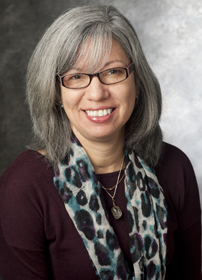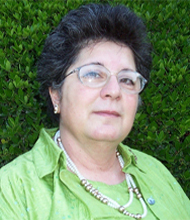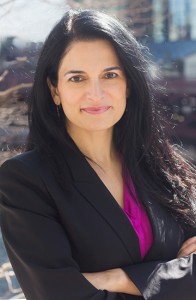Cultivating Peace through a Women’s Interfaith Dialogue & The Critical Role of Women in the Peacemaking Process: Shared Session at the Parliament of the World’s Religions

Another inspiring, challenging session at the Parliament of the World’s Religions in Utah illustrated the power of women to make peace in our world.
Because of the large number of workshop proposals, many of the sessions were shared. In one shared session Isabel Docampo and Hind Jarrah spoke on “Cultivating Peace through a Women’s Interfaith Dialogue,” and Camille Khodadad spoke on “The Critical Role of Women in the Peacemaking Process.” These topics are especially timely in light of the increased Islamophobia and violence in our world.

Rev. Dr. Isabel Docampo began the session, telling about the Dallas Women’s Interfaith Dialogue group she helped create and lead after September 11, 2001. Muslim, Jewish, and Christian women gathered to share their stories. Isabel talked about the intersection of race, gender, class, and religion in their stories. The stories included experiences they had in common as women being subordinated as second-class citizens. “Although we had different pathways, we discovered unified perspectives on complex subjects,” Isabel said. “We named God transcending our differences, building interfaith bridges. God became visible in new ways as we bore witness to our experiences. Our lives were transformed.” Lamenting the tragedy of September 11 together, the women moved from grief into hope and imagination. Activist groups grew out of the Women’s Interfaith Dialogue. “Will hope endure?” Isabel asked and then answered, “I believe yes, because interfaith dialogue nurtures hope. Hope rises out of the ashes of despair.”
In an interview for Changing Church: Stories of Liberating Ministers, Rev. Dr. Docampo told me about experiencing the Divine Feminine through this Women’s Interfaith Dialogue group: “The most magnificent thing is to sit in a room, to be in relationship, to hear each other’s stories. I ended meetings saying, ‘The Divine Feminine has been with us tonight,’ and they would all agree. These were Muslim, Christian, and Jewish women from conservative to liberal; they were all over the place theologically. But at the end of those meetings when we really listened, when we heard each other’s pain, when someone’s story really touched us and we realized that we were all women and that God was working through us and in our lives in ways that we could not even fully articulate, I could say, ‘The Divine Feminine has been with us tonight in the most special way,’ and everyone would receive that. We were going to walk out of that room changed women, much more open to each other now.”

At the Parliament workshop Dr. Hind Jarrah, another leader of the Dallas Women’s Interfaith Dialogue group, illuminated the strengths of the friendship dialogue model. By focusing on building relationships as the cornerstone for interfaith dialogue, group members learn how to listen well and embrace differences respectfully. The goal is to understand differences and create goodwill. There is no hidden agenda of proving one faith as superior, and leadership is shared. “September 11 shook us like an earthquake,” Hind said. “I was afraid that when I opened my mouth, people would hear only my accent. It was a scary experience. My Christian and Jewish sisters in the dialogue group had compassion to hear and respect my voice and experience. And hearing their stories, I discovered that I’m not the only one who has truth. I learned to ask what values the religion and culture are teaching.” Hind told how the interfaith dialogue group began with only five women at a table. These women invited friends and built the group to 100. They became active in peace work in the community. “Women have great power,” she said. “We use our gifts of networking and don’t allow anyone to stop us even if our efforts are minimized.”
Born in Beirut to Palestinian parents, Dr. Jarrah has used her gifts for many years to work for peace and human rights and to promote respect for multicultural diversity. She has organized interfaith dialogue presentations in schools, colleges, churches, clubs, and international societies. She is co-founder and executive director of the Texas Muslim Women’s Foundation, a non-profit, educational, philanthropic, outreach and social service organization dedicated to empowering Muslim women and their families. At the Parliament workshop she told about how this organization helps victims of domestic violence and works to end misconceptions about Islam and Muslim women. Dr. Jarrah has also served on the Faith and Feminism Committee and the Board of Trustees of the Dallas Women’s Foundation.

At this Parliament session, Camille Khodadad, a human rights and employment lawyer, also emphasized the power of women in peacemaking. An active member of the Baha’i community, Camille said that her faith teaches the oneness of humanity and the equality of all people. These teachings have inspired her to become involved in human rights initiatives, particularly those addressing the global lack of equality for women. She stressed that gender equality is necessary to peace and social progress. “Peace cannot be achieved until women freely contribute to society’s policy making,” she said. “Social, economic, and political progress cannot be achieved until women’s equality is recognized, enabling women to fulfill their role as peacemakers.”
Ms. Khodadad cited some hopeful signs of movement toward women’s equality such as the creation of the UN Commission on the Status of Women in 1947; the Convention on the Elimination of All Forms of Discrimination against Women, adopted in 1979 by the UN General Assembly, often described as an international bill of rights for women; and the 1993 UN Declaration on the Elimination of Violence Against Women. “But we have a long way to go,” she said. “In the 21st century the paramount moral challenge is equality for women in the world.” She addressed four areas that especially need work:
(1) assuring women and girls the right to education, healthcare, and food;
(2) assuring women jobs and economic access so they can profit from work and reduce poverty (US ranks 65th in the world in wage equality);
(3) increasing women’s voices in decision making in the public sphere (US ranks 98th in the world in women’s representation in government leadership);
(4) ending violence against women and girls—one of the most widespread human rights violations worldwide; Nicholas Kristof and Sheryl WuDunn write in Half the Sky that more girls are killed in this ‘gendercide’ in one decade than people were killed in all the genocides of the 20th century.
This Parliament session gave me an even deeper understanding of the connection between gender equality and peace and justice in the world. Gender equality intersects with nonviolence, racial equality, care of the environment, economic justice, and all forms of justice. United Nations Secretary General Ban Ki-moon states: “Until women and girls are liberated from poverty and injustice, all our goals—peace, security, sustainable development—stand in jeopardy.” I left the session more committed than ever to work for equality for women in the church and in other areas of life.